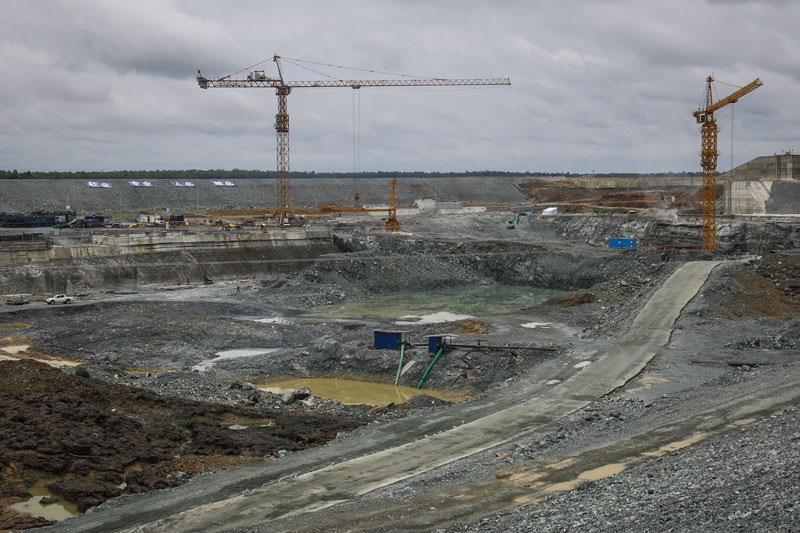As work moves ahead on the controversial Lower Sesan 2 dam in Stung Treng province, the Ministry of Mines and Energy met Tuesday with representatives of more than 250 families still refusing to make way for the dam’s reservoir.
During the meeting at the ministry in Phnom Penh, Secretary of State Ith Praing told five representatives of the families in Sesan district’s Srekor commune—whose homes will be flooded upon completion of the dam downstream—that the government was pushing ahead with its plans, but that the families could still receive a host of benefits if they resettled.

“The project is moving forward,” Mr. Praing said. “There are 254 families remaining [on land that will be flooded by the dam] and our working group is continuing their work.”
Mr. Praing said that on top of the compensation being offered to the families—in the form of cash or a new house about 40 km from the dam reservoir—they could also get $100 to cover moving costs, 20 kg of rice per person per month for a year, $15 worth of kerosene per month, and $200 in “encouragement money.”
However, deputy Stung Treng governor Duong Pov said the benefits would only be available through July.
“We have asked that they move their homes before the end of July,” Mr. Pov said, adding that the dam’s 36,000 hectare reservoir was about 30 percent complete.
The 400-MW dam—being built by local conglomerate Royal Group and Chinese firm Hydrolancang International Energy—has come under fire for the threat it poses to fish stocks, and for its impact on families being told to move.
Huot Koeun, 36, who was among the community representatives at Tuesday’s meeting, said he was not tempted by the government’s offer.
“We will not move because the resettlement site land is of poor quality and cannot be cultivated for agriculture in the long term,” he said.



